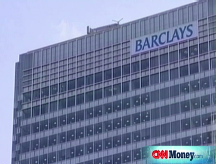Citi dodges bullet
Government will guarantee losses on more than $300 billion in troubled assets and make a fresh $20 billion injection.
 |
| Citigroup secured a massive government aid package over the weekend following a painful selloff last week in company stock. |


NEW YORK (CNNMoney.com) -- The U.S. government on Sunday announced a massive rescue package for Citigroup - the latest move to steady the banking giant, whose shares have plunged in the past week.
Citigroup shares rose 33% in premarket trading Monday.
The plan has two key features:
First, the U.S. Treasury and the Federal Deposit Insurance Corporation (FDIC) will backstop some losses against more than $300 billion in troubled assets.
Second, the Treasury will make a fresh $20 billion investment in the bank. The government has already injected $25 billion into Citigroup as part of the $700 billion bailout passed by Congress in October.
In return for the latest intervention, the government will receive an additional batch of preferred shares - $20 billion for its direct investment and $7 billion as compensation for the loan guarantees. Citigroup will pay an 8% dividend rate on those shares.
In addition, the government will get warrants, or the right to purchase $2.7 billion worth Citigroup shares in the future.
The government will impose restrictions as well. Citigroup will be prohibited from paying out a dividend of more than a penny per share for the next three years and will face limits on executive compensation.
Plus, Citigroup will be expected to adjust mortgages for troubled borrowers, using procedures similar to those the FDIC implemented at IndyMac, which it took over last summer.
"With these transactions, the U.S. government is taking the actions necessary to strengthen the financial system and protect U.S. taxpayers and the U.S. economy," Treasury, Federal Reserve and the FDIC said in a joint statement.
Under the terms of the Citigroup rescue package, the bank would be on the hook for the first $29 billion in losses on the covered assets, which includes mostly loans backed by residential and commercial mortgages. It would cover 10% of losses above that amount, with the government shouldering the rest.
Despite the massive rescue effort, regulators did not push for a management change at Citigroup. In recent days, there had been speculation that Citigroup CEO Vikram Pandit could step down. There had also been talk that the company was considering replacing Chairman Sir Win Bischoff, although the company denied such reports.
Citigroup has been one of the hardest hit financial firms since the mortgage market first started to unravel in the fall of 2007. Over the past four quarters, the company has recorded close to $21 billion in losses.
Investors seemed encouraged by news of the Sunday night rescue. Major European markets jumped at the open, with Citi shares climbing 35% in Frankfurt. U.S. futures were pointing to a higher open Monday.
Federal Reserve Chairman Ben Bernanke and Timothy Geithner, president of the New York Fed, were both involved in the weekend talks over Citigroup's fate, according to government officials. Geithner is expected to be nominated to be Treasury Secretary by President-elect Barack Obama.
There had been concerns that letting another major financial institution fail would have disastrous consequences for both the U.S. economy as well as the global financial system. The bank had more than $2 trillion in assets as of the end of the third quarter and has operations in more than 100 countries.
Last week, fears about Citigroup's fate rattled equity markets around the globe and sent shares of the 196-year-old firm plummeting to levels not seen in over a decade.
Citigroup shares lost close to two-thirds of their value for the week, even as the company announced plans to layoff more than 50,000 workers and as its largest individual shareholder upped his stake.
By the close of trading on Friday, Citigroup (C, Fortune 500) shares had dipped below $4 a share, and were down 87% for the year.
The most recent slide in Citigroup stock comes on the heels of news earlier this month that the Treasury Department was abandoning its initial rescue plan to buy troubled assets from banks - Citigroup had been seen as a major beneficiary of that strategy.
Instead, as part of the $700 billion bailout package that was signed into law in early October, Treasury has focused on making direct investments in banks. In exchange for equity stakes, the agency has injected $25 billion into Citigroup and an additional $100 billion into eight other major U.S. financial institutions.
Despite the recent events, many industry experts had stressed that Citigroup is relatively healthy. Two veteran banking analysts - Mike Mayo of Deutsche Bank and Ladenburg Thalman's Richard Bove - both advised clients last week that Citigroup could survive substantial loan losses.
Where do all the money come from?
















































